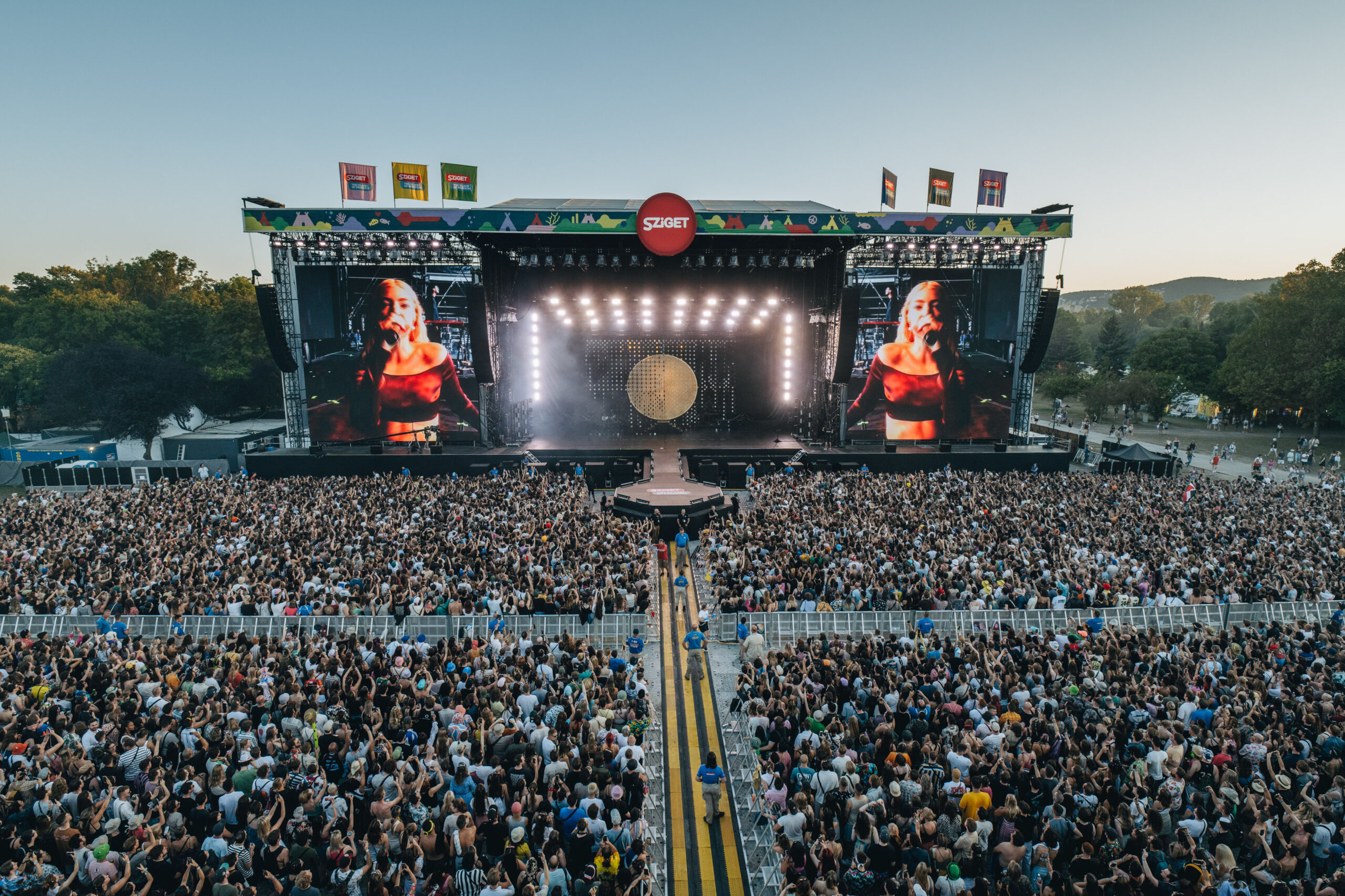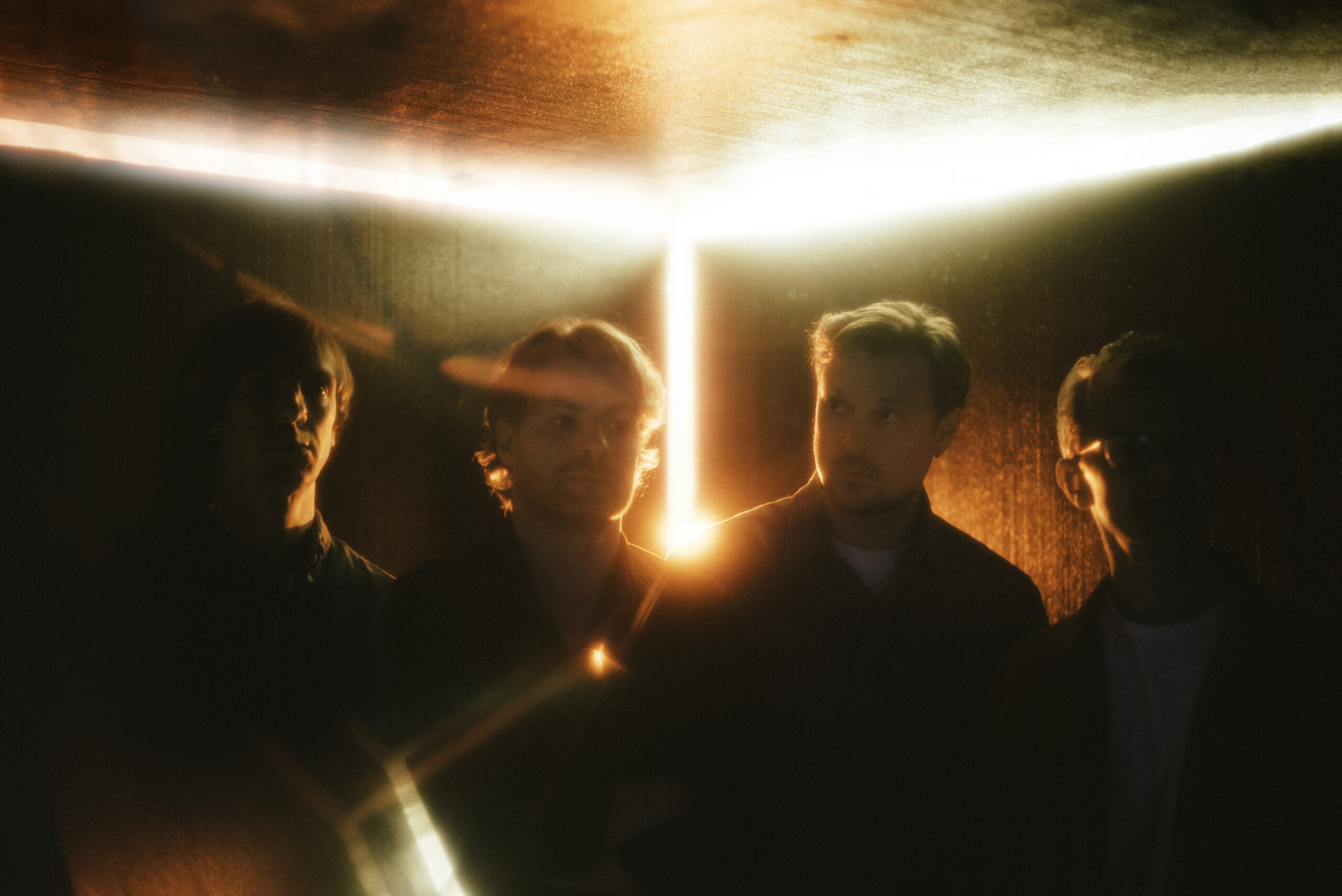Foto-© Horacio Bolz
Die Zeiten sind hart, da tut ein Leuchtfeuer gut. Django Django liefern es mit ihrem vierten Album, es heißt passend zur Situation Glowing In The Dark. Seit ihrem Debüt aus dem Jahr 2012 überzeugen die in London lebenden Musiker mit ihrem generationsübergreifenden Ansatz. Sie erweisen sich in der Tradition als kundig, wenn sie auf die Beatles, Beach Boys, T. Rex, Krautrock und Library Music anspielen. Django Django gehören wie Hot Chip, Metronomy oder Friendly Fires aber auch zu den Bands, die Kenntnisse auf dem Gebiet der elektronischen Clubmusik inkorporieren. Für sie ist es selbstverständlich, dass zu einer Melodie auch ein guter Groove gehört. Zwischen diesen beiden Polen changiert der Sound, was aber nicht bedeutet, dass es allein dabei bleibt. Andere Versatzstücke können hinzukommen und das Bild vervollständigen. So auch dieses Mal. Sänger Vincent Neff und Charlotte Gainsbourg sorgen in Waking Up für einen Bonnie-und-Clyde-Moment, an anderer Stelle wird auf Portugiesisch gesungen oder der Einflussbereich auf das ausgedehnt, was man etwas abschätzig AOR nennt, also ollen Erwachsenenrock. Gedanklich visieren Django Django ferne Sphären als Fluchtort an, in Free From Gravity fühlen sie sich von Grund auf von allem befreit. Aber man erkennt bei den Djangos jetzt auch Willen zu mehr Bodenständigkeit, dann heißen die Songs Right The Wrongs, Got Me Worried, Headrush oder Kick The Devil Out. Angesichts der neuen Entwicklung bot es sich an, ein paar Worte mit Dave Maclean zu wechseln. Der Schotte ist Schlagzeuger, Produzent, Plattensammler und kreativer Leiter der Band. Wir trafen ihn beim Einkaufen im Stadtteil Tottenham per iPhone über Zoom.
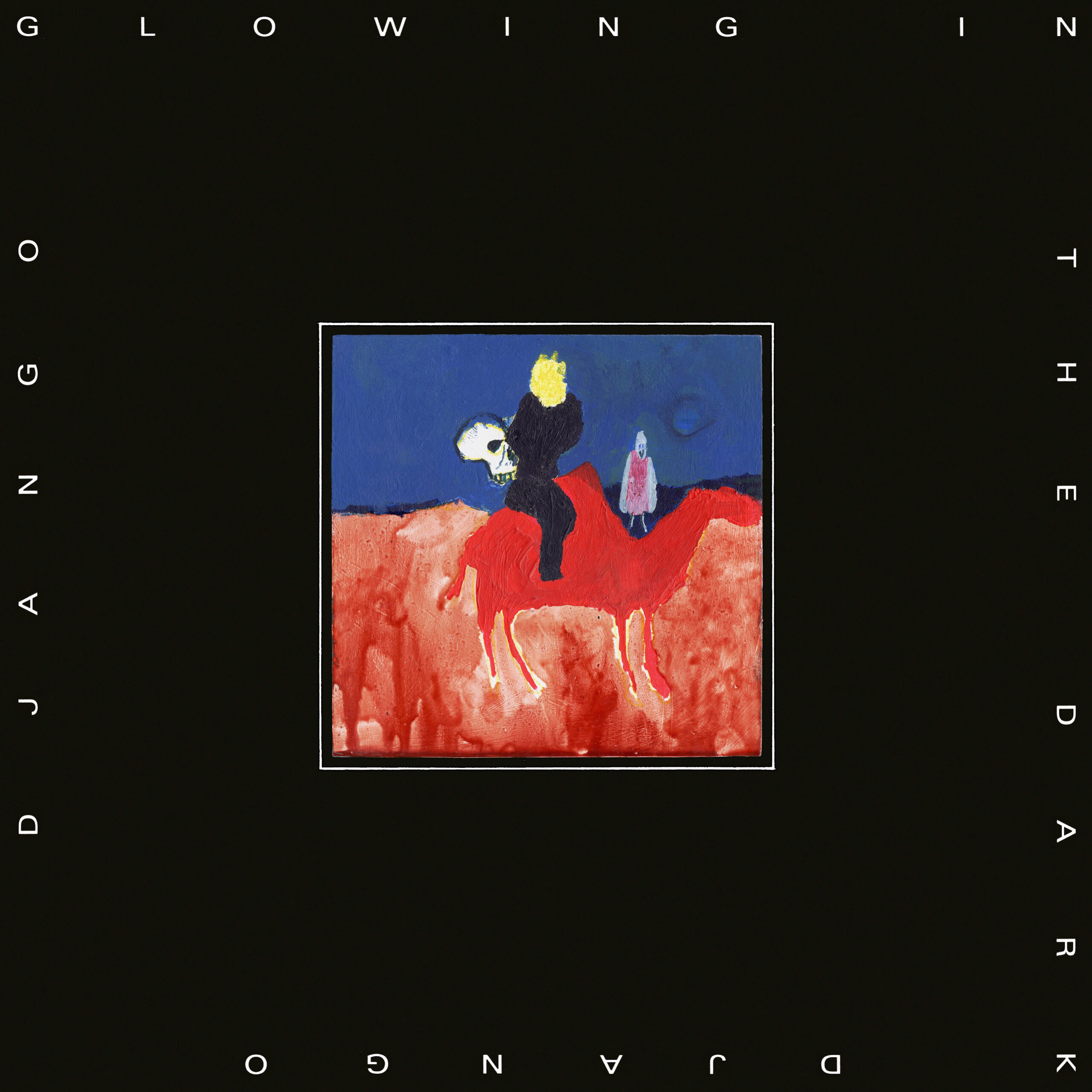
Let‘s go back in time first. There is an interesting track on the Late Night Tales compilation you‘ve worked on a few years ago for Django Django. How did you come across James Last‘s version of Marvin Gaye‘s Inner City Blues?
When I was at school there was a poster with James Last on it in the music room. It always stuck with me. When I got into hip hop and record collecting and sampling I just kept finding James Last‘s stuff in record shops and started buying it. He‘s got loads of great versions of classics by The Beatles too. I like the Inner City Blues version, it‘s quite weird and very hip hop sounding. The girl‘s voice is quite odd.
James Last had more than one hundred album entries in the German charts between 1965 and 2010. He‘s not really that well known in Britain, isn‘t he?
Oh, I didn‘t know he was so popular in your country! That‘s a massive achievement! I guess he was very popular here in the 70s over here, but not so much in the 80s when everybody turned to more futuristic bands and records. Nobody wanted the swing time stuff anymore. I think that was a hangover from the 30s, 40s and 50s. The big band concept was a hangover from that period in time.
Singer Vincent Neff said before the release of Marble Skies that you didn‘t participate much in the demo process for that record. Anna from Metronomy played the drums for a bit. What was the problem at the time? Did you need a breather?
Yeah, I needed a break. We‘ve been on tour and recording since 2009 and we‘ve done a perticularly hard tour to promote Born Under Saturn. At the end of the tour I got to L.A. to produce a KT Tunstall album. I was really burnt out and got ill doing that, I had an acute tonsilitis and exhaustion. When I came home I needed a time out from it. I think people sometimes don‘t get how physical drumming is. When you‘re drumming a few tours back to back, your body can give up. I‘m not really a great technical drummer, I‘ve got my own self-taught style of drumming. But sometimes I want someone who can really do jazz fills or a specific thing in my head I can‘t do myself. Anna‘s more of a technical drummer, a drummer‘s drummer, so they were probably very happy to have her…. (laughs)

How would you describe the preparations for this Django Django album, was it more relaxed?
Yeah, I think so. After Marble Skies we felt in a very good place and carried on, we kept the momentum going. For the first time really we started incorporating songs we‘ve been playing live before we recorded them to bash them into shape a bit, that was good. For this album we‘ve also had the studio set up professionally, all drums were miked up properly, everything was sorted out and tidied up. Before that our studio was just a room where we dumped stuff, went in to sample records. This time round we took time to buy microphones for the drums, we were more self-efficient than ever on this album.
Glowing In The Dark sounds as if the band wanted to go back to basics. It includes 60s echoes with allusions to The Beach Boys and Beatles plus psychedelia and Krautrock and also more 90s-inspired groove elements. The icing on the cake are the melodies on top. How much time does it take to create these beauties?
They are really important for us. On an album like Sandinista by The Clash the rhythm and production are incredible. A lot of the time Joe Strummer is rapping in a song like The Magnificent Seven, it‘s almost more like Sleaford Mods, where the words are cutting and edgy. Vinny‘s style of singing is always more melodic than that, there‘s nowhere to hide, you have to nail it. I‘d say some of the songs go through four versions of the melody until one really locks. I think I‘m quite strict in the studio. If the melody isn‘t working, I‘m just like: ditch it. Because of the way Vinny sings it‘s important for me to get the melodies right.
You‘re doing the hard talk in the band?
It‘s me sitting on the computer recording it and I think a producer usually has the most distant, the most separated outlook on the sounds, you know. If I was Vinny and I‘m singing the melody, I would get bogged down and wouldn‘t know where I was. I‘d want somebody who says that‘s good and that isn‘t. It helps to have someone in the band who is almost like a fan or a listener, when someone comes in with a song. He can be honest about it.
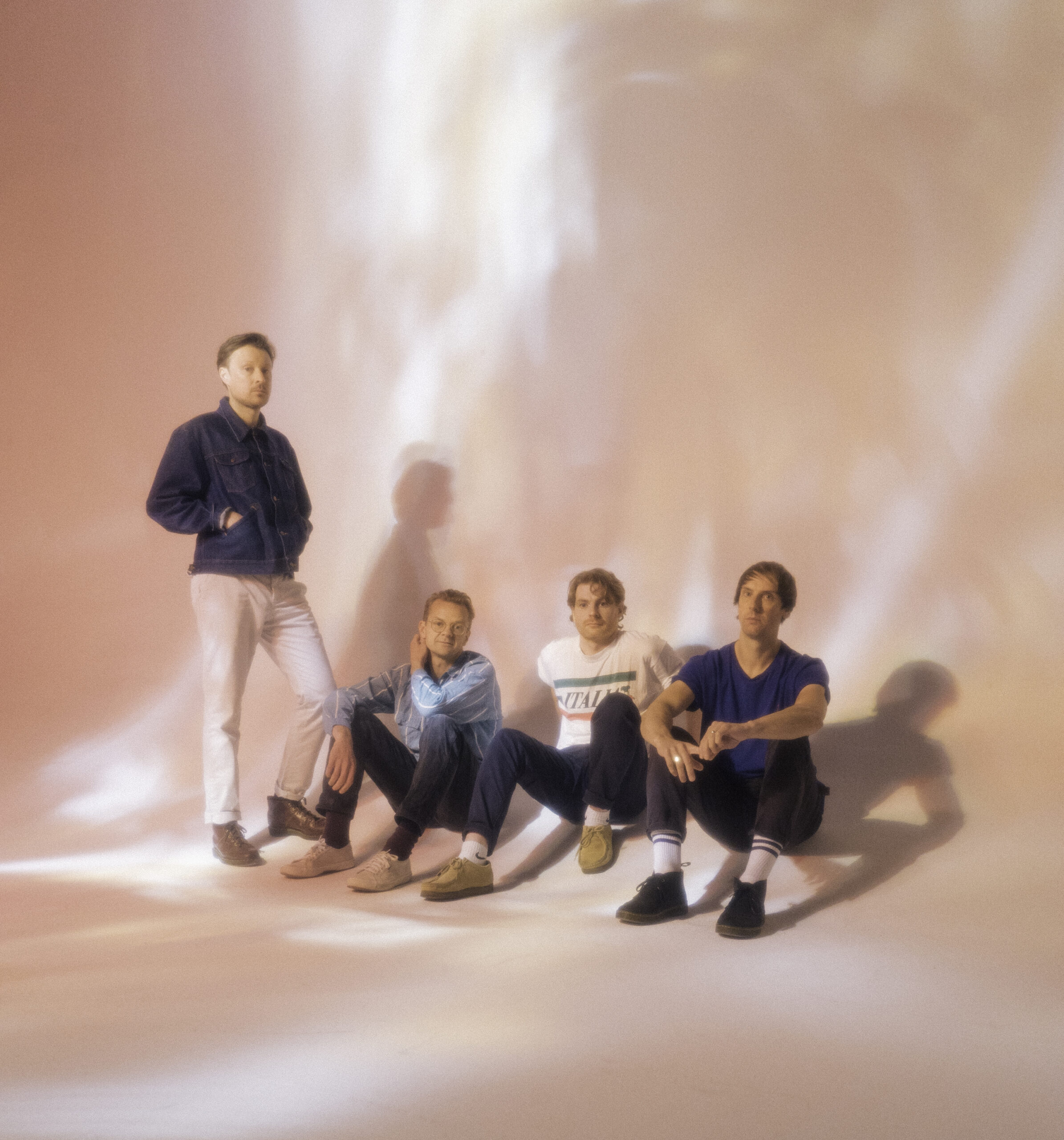
Let‘s talk about a few songs. Asking For More is inspired by Joe Jackson and Hall & Oates, the song reminds me of their hits Steppin‘ Out and Maneater. What do you like about the style these artists epitomize?
When I was growing up there was so much of that type of music around that people call AOR, album-orientated rock. A lot of it I didn‘t understand or didn‘t excite me, I preferred Jimi Hendrix or The Rolling Stones at the time. But then I started to get into Hall & Oates and Gerry Rafferty‘s albums and into Supertramp. The production in those 70s and 80s records just started to really get me interested. Joe Jackson‘s Steppin‘ Out is definitely one of those tracks. I think in those decades there was a lot of cocaine-fuelled positivity in a lot of these records. Also the production is quite stripped back, they used specific effects on the choruses. It‘s that sound that we were going for, similar to a track like I Can‘t Go For That (No Can Do) by Hall & Oates. It‘s the drum machine, the vocal, the harmonies, the sax, it‘s a few elements recorded well and produced well. It reminds of being a kid and what a lot of parents were listening to in the 80s, what the grown-ups had in the car when they were driving to the swimming pool or something (laughs).
A worldly flavour is coming through as well. There‘s the oriental sounding bit in Night Of The Buffalo, Vinny‘s Portuguese vocals in Got Me Worried and the input of a Brazilian friction drum player. Why did it seem fitting to have all that?
I was recording a Portuguese singer called Sonia Bernardo. She was around in the studio when we were working on Got Me Worried, she made the suggestion. She also got me listening to a lot of Brazilian music I hadn‘t heard before, especially from the 70s. For me, if a track or a demo sounds like it‘s dying to go into one direction I‘m happy to let it go that way. On the last album we had Surface To Air where Self Esteem was doing the main vocal. A lot of the music I listen to is not Western, 50% are from Africa, Turkey or South America. If you listen that kind of music, it‘s bound to come through in what you‘re into. We‘re not trying to be wacky with it or trying to culturally appropriate other people‘s music. I always loved how David Byrne and Talking Heads brought international rhythms into the post punk sound.

The lyrics are a bit different this time too. More than ever you seem to be happy to directly say what you think instead of being vague. Is that a reflection of the times we are living in?
Headrush and Kick The Devil Out are about what was happening at the time politically and internationally, you can‘t ignore it. We had another track that was about climate change and Extinction Rebellion, it didn‘t make the album, but it will come out on the next one. You can‘t help it, you feel you have to say something about it because it‘s just dominating everything at the moment. I think our music is about coming together rather than the divide-and-conquer thing you see in America. It‘s a classical political divide-and-conquer element to put a wdge between people, whether it‘s racial or left and right. People are tricked and played every time again and again by this stuff. It‘s important more than ever to respect each other and live in harmony with each other in society. We‘re all mixing, we have to get along.
What are your plans for 2021? Any dates for a tour?
I miss gigs, but I don‘t miss exhaustive touring. When you get older it‘s not as sustainable as when you‘re in your twenties when we started. I‘m happy in the studio. And although the situation‘s a nightmare at the moment, it‘s definitely given me some time to go back to go through old hard drives and bring out songs from the period when Django Django started or even from the 1990s, when I had a 4-track in Scotland and was making hip hop. It‘s good to be able to take stock and look at what‘s worth finishing. As a band we‘re lucky that we‘re in the situation where we became self-sustainable over the past ten years. We don‘t have to rely on other people, we can come into the studio to do whatever we want and get on with it ourselves.
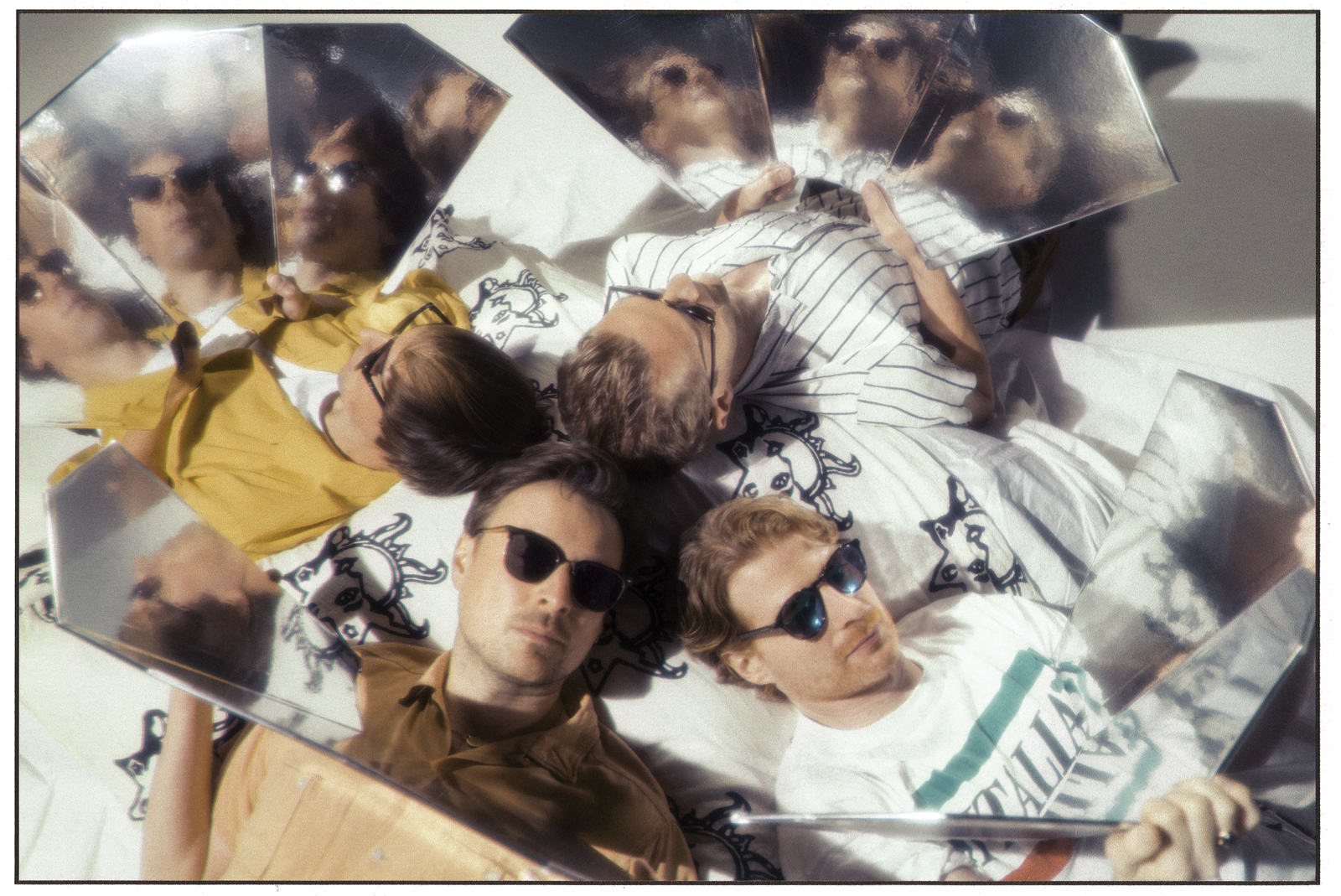
Any other projects you‘re going to be involved with, since you spoke about your work with KT Tunstall and Sonia Bernardo?
Yeah, I was just speaking to Raven Bush who‘s the nephew of Kate Bush. He‘s a violin player who played on quite a few a tracks on Glowing In The Dark. There‘s also drummers I know I‘ve been sending stuff to. There‘s a few tracks that I really want guest vocalists on, can‘t really say who I‘m thinking of because they‘re never going to do it (laughs). We love collaborating, we‘e not precious about who‘s playing or singing on something.
What was it like to record with Charlotte Gainsbourg?
Oh great, yeah. Vinny went over and recorded it, I didn‘t go. She was really up for it and loved the result and it sounded exactly how we imagined it. We were chuffed she wanted to do it.
„We had the time of our lives and we‘re still wanting much more, but now we know we gotta go, we gotta go, we gotta go“ – this what Vincent is singing at the end of the new album. Judging by the geat result now we can only hope you‘re going to stick around for a long time.
We are definitely, there‘s more to come from us, don‘t worry.


